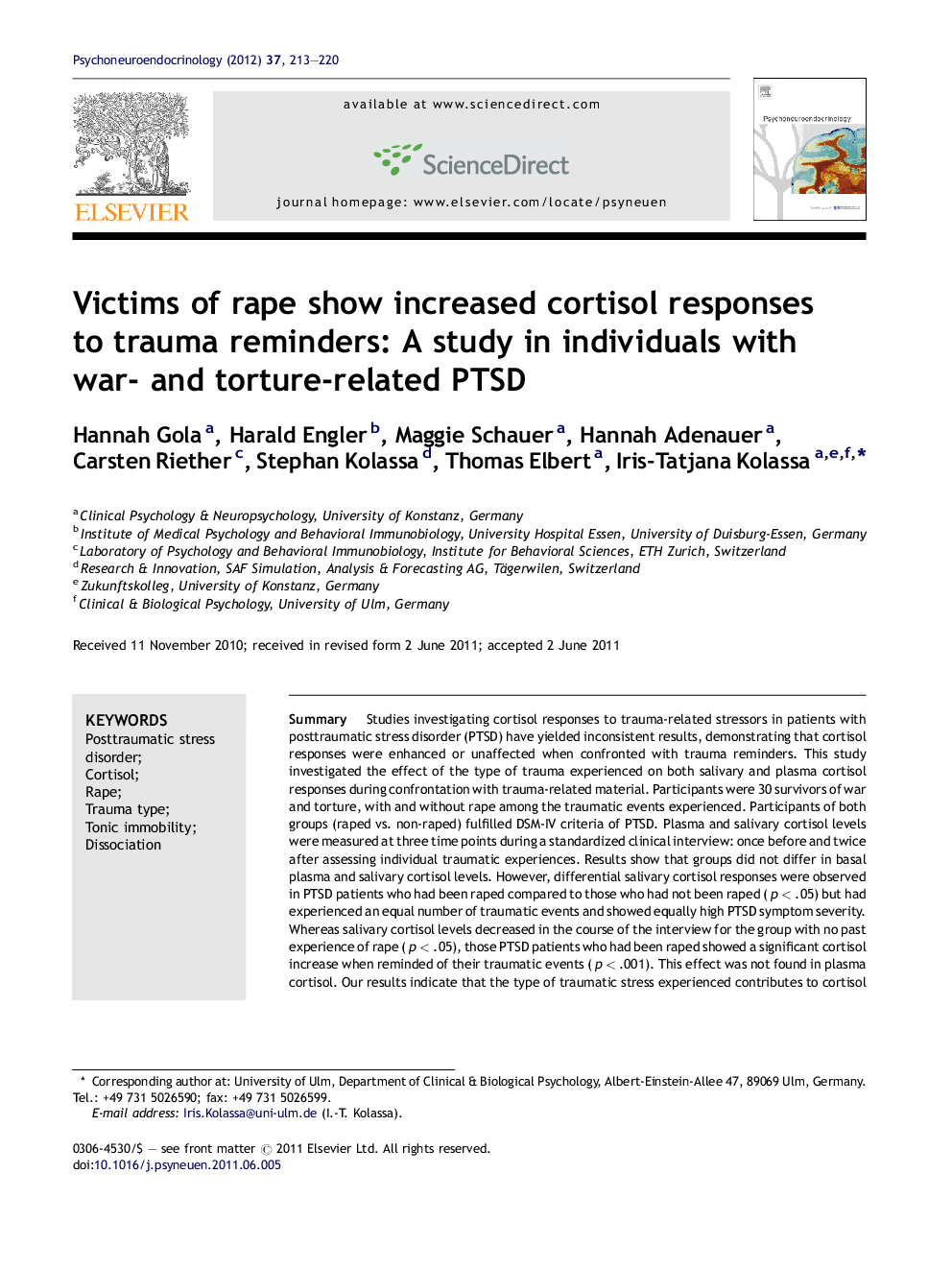| Article ID | Journal | Published Year | Pages | File Type |
|---|---|---|---|---|
| 10306342 | Psychoneuroendocrinology | 2012 | 8 Pages |
Abstract
Studies investigating cortisol responses to trauma-related stressors in patients with posttraumatic stress disorder (PTSD) have yielded inconsistent results, demonstrating that cortisol responses were enhanced or unaffected when confronted with trauma reminders. This study investigated the effect of the type of trauma experienced on both salivary and plasma cortisol responses during confrontation with trauma-related material. Participants were 30 survivors of war and torture, with and without rape among the traumatic events experienced. Participants of both groups (raped vs. non-raped) fulfilled DSM-IV criteria of PTSD. Plasma and salivary cortisol levels were measured at three time points during a standardized clinical interview: once before and twice after assessing individual traumatic experiences. Results show that groups did not differ in basal plasma and salivary cortisol levels. However, differential salivary cortisol responses were observed in PTSD patients who had been raped compared to those who had not been raped (p < .05) but had experienced an equal number of traumatic events and showed equally high PTSD symptom severity. Whereas salivary cortisol levels decreased in the course of the interview for the group with no past experience of rape (p < .05), those PTSD patients who had been raped showed a significant cortisol increase when reminded of their traumatic events (p < .001). This effect was not found in plasma cortisol. Our results indicate that the type of traumatic stress experienced contributes to cortisol responses during the confrontation with trauma-related material. We hypothesize, that the nearness of the perpetrator during the traumatic event might shape later psychophysiological responding to trauma reminders.
Related Topics
Life Sciences
Biochemistry, Genetics and Molecular Biology
Endocrinology
Authors
Hannah Gola, Harald Engler, Maggie Schauer, Hannah Adenauer, Carsten Riether, Stephan Kolassa, Thomas Elbert, Iris-Tatjana Kolassa,
